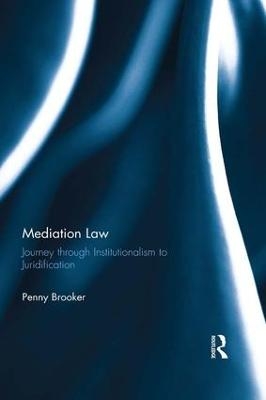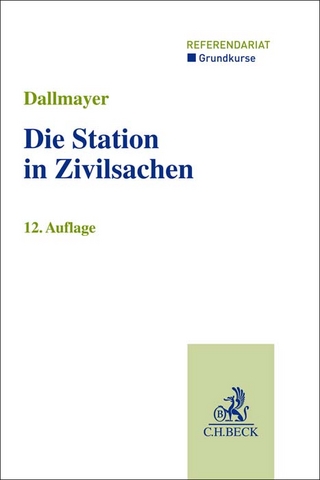
Mediation Law
Journey through Institutionalism to Juridification
Seiten
2015
Routledge (Verlag)
978-1-138-63949-2 (ISBN)
Routledge (Verlag)
978-1-138-63949-2 (ISBN)
In England mediation became a key part of the civil justice reform agenda after the Woolf Reforms of 1996, as disputants were deflected from litigation towards settlement outside the court system. The Civil Procedure Rules (CPR) give courts the power to ‘encourage’ mediation through judicial case management or use stronger measures by using costs to penalise parties who act unreasonably by refusing to use ADR or mediation. One of the effects of this institutionalisation is an emerging case law that defines how mediation is practiced as it is merges with the litigation process. When mediation first began to be used in England the parties either agreed to mediate by a contract before a dispute happened or decided to attempt the process as a way of resolving disagreements. Inevitably, some disputants either refused to abide by their contractual obligations or would not follow through with the settlement agreements reached through the process. This brought the authority of the law into a new area and the juridification process began.
This book explores how mediation law shapes the practice of mediation in the English jurisdiction. It provides a comprehensive examination of the legal framework for mediation, and explores the jurisprudence in order to analyse the extent that institutionalisation by the state and courts has led to the monopolisation by lawyers and a further ‘juridification’ process results. The book includes a comparative legal methodology on the framework underpinning mediation practise in other common law jurisdictions, including the United States, Australia, and Hong Kong, in order to explicate shared or distinctive approaches to mediation.
The book will be of great interest to academics and students of legal theory and dispute resolution.
This book explores how mediation law shapes the practice of mediation in the English jurisdiction. It provides a comprehensive examination of the legal framework for mediation, and explores the jurisprudence in order to analyse the extent that institutionalisation by the state and courts has led to the monopolisation by lawyers and a further ‘juridification’ process results. The book includes a comparative legal methodology on the framework underpinning mediation practise in other common law jurisdictions, including the United States, Australia, and Hong Kong, in order to explicate shared or distinctive approaches to mediation.
The book will be of great interest to academics and students of legal theory and dispute resolution.
Penny Brooker is a Reader in Alternative Dispute Resolution and Mediation at the University of Wolverhampton, UK. She, along with Suzanne Wilkinson, has edited Mediation in the Construction Industry: An International Review (2010: Spon Press).
1. Development of Modern Mediation 2. Initiating Mediation through ADR Clauses and Court Stays 3. Enforcing Mediation Settlement Agreements 4. Legal Framework for Mediating in England and Wales Introduction 5. The Law Surrounding Mediation Confidentiality 6. Conclusions: Mediation Law: Journey to Juridification through Institutionalisation
| Erscheinungsdatum | 09.03.2016 |
|---|---|
| Verlagsort | London |
| Sprache | englisch |
| Maße | 156 x 234 mm |
| Gewicht | 453 g |
| Themenwelt | Recht / Steuern ► Allgemeines / Lexika |
| Recht / Steuern ► EU / Internationales Recht | |
| Recht / Steuern ► Privatrecht / Bürgerliches Recht ► Zivilverfahrensrecht | |
| Recht / Steuern ► Wirtschaftsrecht ► Handelsrecht | |
| ISBN-10 | 1-138-63949-4 / 1138639494 |
| ISBN-13 | 978-1-138-63949-2 / 9781138639492 |
| Zustand | Neuware |
| Informationen gemäß Produktsicherheitsverordnung (GPSR) | |
| Haben Sie eine Frage zum Produkt? |
Mehr entdecken
aus dem Bereich
aus dem Bereich
mit Allgemeinem Gleichbehandlungsgesetz, Produkthaftungsgesetz, …
Buch | Softcover (2024)
dtv Verlagsgesellschaft
CHF 12,45
Grundkurs für Rechtsreferendare
Buch | Softcover (2023)
C.H.Beck (Verlag)
CHF 55,70


